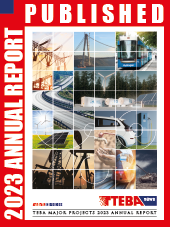6/7/2017
OECD, Global Economic Outlook Report
Growth estimates for Turkey in the OECD report were 3.1, 34, and 3.5 for 2016, 2017, and 2018 respectively. Commenting on the report, the Deputy Prime Minister Mehmet Şimşek said: "OECD raised the 2017 growth projections for Turkey to 3.4. The actual rate will be higher. 5 percent is possible with reforms."
OECD reported in its Global Economic Outlook report published in June 7, 2016, that the economic activity in Turkey slowed down in 2016 due to the coup attempt on July 15 but both private sector consumption and investments started to recover with a series of measures taken by the government. OECD states in its report that: "Fiscal and other measures, supported by a pick-up in export demand, have stimulated private consumption and investment. Their impact on public finances and the quality of credit allocation should be monitored. Faced with sharp exchange rate depreciation and rising inflation expectations, the monetary stance has been tightened, but explicit increases in the main policy rate are warranted." Stating that increasing net exports through further integration in global and European value chains is crucial for job creation in the face of a high unemployment rate, without further increasing the current account deficit, OECD maintained that to this effect, the long-planned, though now uncertain, deepening of the customs union agreement with the European Union and its extension to agriculture and service sectors is key. According to the OECD report, growth projections for Turkey are 3.1, 3.4, and 3.5 while inflation projections are 7.8, 10.4, and 8.1 for 2016, 2017, and 2018 respectively. Projecting that unemployment rates will be 10.9, 10.8, and 10.9 in 2016, 2017 and 2018, OECD projected current accounts deficit as 3.8, 4.8 and 4.6 for the same period. The expectation of growth in the global economy this year is updated as 3.4 from 3.3 in March. OECD lowered its growth projection for Turkey in 2018 from 3.8 to 3.5. Commenting on the report, Deputy Prime Minister Mehmet Şimşek said: "OECD raised the 2017 growth projections for Turkey to 3.4. The actual rate will be higher. 5 percent is possible with reforms." The Report Titled "Capital Inflow to Emerging Markets" of the Institute of International Finance The Institute of International Finance published the June 2017 issue of the report titled "Capital Inflow to Emerging Markets". According to the report, capital inflow to emerging markets is expected to reach $970 billion with 35 percent increase. The report covers 30 countries including Brazil, China, India, Mexico, Russia, South Africa and Turkey, and emphasizes that capital inflow to emerging markets is expected to increase considerably in 2017 and 2018. Pointing out in particular that the risks persist for capital inflow to the emerging European market economies, the IFF report states that "Turkey is the most fragile economy in the region to a global fluctuation in sales since it needs short-term capital inflow in order to finance its increasing current deficit." It is further estimated in the report that the capital inflow to Asian, Latin American and Gulf Cooperation Council countries will increase in 2017 and 2018, and the capital inflow to Russia will continue to depend on the economic sanctions imposed on the country since 2014.
Annual Report
